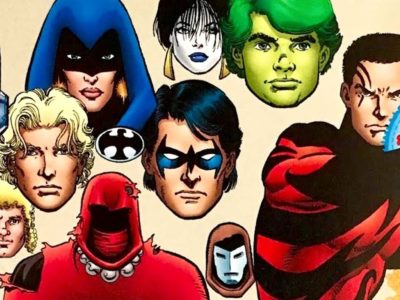
[ad_1]
Two alternate futures outside of Batman Beyond revealed some of the few things that could make Bruce Wayne stop being Gotham City’s Dark Knight.
The DC Universe is known for having alternate stories that break away from established canon and show roads not traveled by the heroes in the mainstream universe. In one such world, Bruce Wayne retired from the role of Batman to try and improve the world in a different way: by becoming involved in politics. This story was told decades before the beginning of Batman Beyond, in which Bruce quit being Batman for much darker reasons, and gives a glimpse of a Gotham City devoid of its fabled Caped Crusader.
In 1978’s Batman #300, by David V. Reed, Walt Simonson, Dick Giordano, Jerry Serpe, and Shelly Leferman, Gotham City had expanded to become part of a megalopolis and Batman teamed up with Robin one last time to stop a dangerous cabal of criminals known as Spectrum. But after successfully stopping the organization, largely due to Spectrum’s missteps, the two reconvened in Bruce’s office where he contemplated how his war on crime might be coming to an end. He elaborated, commenting that the fight had become much more complicated and mechanized and admitted having to struggle to keep up with new machines that continue to outpace the average human.
This all made Bruce wonder if his methods were the most effective way to get the job done. He was then approached by a powerful political reform group who wanted him to run for governor, undoubtedly trusting that the Wayne name would carry him into higher circles of power, and his moral character would help shield him from corruption. Taking on the responsibilities of such a political office would have been enough for Wayne to retire the Batman mantle, but he also had a personal reason for considering stepping down: He wanted to ask the woman he loved to marry him.
While working in politics is sure to have been demanding in and of itself, getting married in addition to taking on the new position would all but ensure that Wayne would no longer have the time necessary to lead a double life. But it also might have finally led Bruce to the happy life that has eluded him since he first lost his parents in his tragic origin story.
But just as there are brighter endings for the Dark Knight, there are also darker ones. In the future depicted in Batman Beyond, Bruce kept being Batman well into his senior years. But as technology improved and his body started to slow down, Bruce couldn’t keep up with his war on crime. He had been compensating with an advanced version of the Bat-Suit, but even the advanced tech could not compensate for his heart issues.
During his last outing as Batman, Bruce suffered a heart attack. He managed to fight off most of the criminals he was facing at the time, but one took advantage of his weakened state. He would have killed Batman had Bruce not grabbed a fallen gun and threatened him with it. The incident shattered Wayne’s faith in his abilities and broke him spiritually. He shut down the Bat-Cave and swore to never wear the cape and cowl again.
These two paths presented two different ways that Bruce Wayne ended his life as Batman. Both scenarios tied to Bruce having a massive emotional shift, one in which his good works paid off and even gave him the opportunity to claim personal happiness. The other saw his spirit broken, and him becoming physically unable to carry on his mission. These scenarios indicate that even the greatest heroes are still human beneath it all in most cases, and most will eventually come to a time where it becomes necessary to retire from the life of being a hero.
About The Author
[ad_2]






